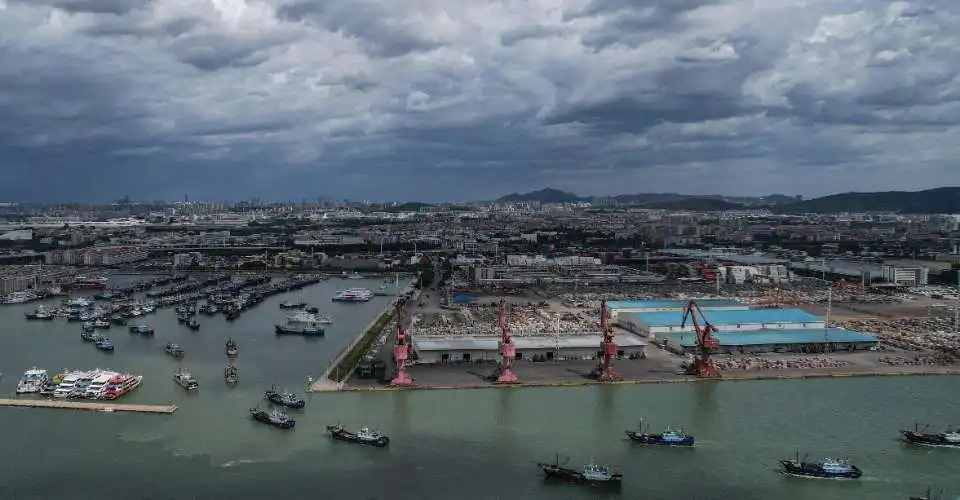
UK ministers are targeting a “nuclear renaissance” as part of efforts to cut reliance on oil and gas from overseas.
Nicola Sturgeon says this could take decades to bear fruit, arguing instead for more use of renewable sources.
But UK energy minister Greg Hands said the war in Ukraine underlined the need for greater energy security.
He told BBC Scotland that there would “never be a better time to bring more nuclear power to Scotland”.
Prime Minister Boris Johnson is hosting a meeting of nuclear energy industry leaders on Monday as work continues on a new UK energy strategy.
Downing Street said Mr Johnson was clear that nuclear power was “absolutely crucial to boosting UK energy security and independence as we move away from Russian hydrocarbons and foreign fossil fuels”.
However the Scottish government is opposed to any construction of new nuclear facilities, saying they would be expensive to build and take years to come online.
Key planning powers are held at Holyrood which allow Scottish ministers to block any development of new sites.
The Hunterston B plant in North Ayrshire was shut down in January, while the station at Torness in East Lothian is due to close in 2028, two years earlier than originally planned.
Mr Hands said it was a “great pity” that Scottish ministers were “ideologically opposed” to nuclear power, saying he would like to see new technology being deployed north of the border.
He highlighted new smaller reactors being developed by Rolls Royce, which could be cheaper to build than conventional plants while still powering approximately one million homes each.
He said: “I’m still hoping the Scottish government will change its mind on nuclear. Obviously they will have seen what is happening with the Russian invasion of Ukraine and the need for better energy security.
“What do you do for your energy baseload when the wind isn’t blowing and the sun isn’t shining? That is currently provided by gas – we would like to see it in the future provided by nuclear. And to do that we need more nuclear power stations.
“There are already very good reasons to think again, because nuclear is going to be a big part of our energy future. But the Russian invasion of Ukraine should hopefully have given them a pretext to have a rethink.”
‘Right balance’
Former Prime Minister Gordon Brown has also said nuclear should be part of a “proper mix and balance” of energy sources.
He told BBC Scotland: “In most countries in the world they’re now considering how they can balance oil and gas, renewables – including solar, wind and wave power – with some investment in nuclear power for the future.
“It’s getting the balance right that’s important. But I don’t think you can meet all the needs you have, even if people cut their use of energy, without having some element of nuclear power in the future.”
Scotland has been generating electricity from nuclear for decades but that era appears to be coming to an end.
With the closure of Hunterston B in Ayrshire, Torness in East Lothian is the last operational plant and is due to cease production before the end of this decade.
That will leave Scotland with a nuclear decommissioning industry but without nuclear power – except that which may be drawn from other parts of the UK on the shared electricity grid.
The Scottish government’s opposition to renewing traditional nuclear fission plants leaves them some wriggle room as the technology develops, but a change in position seems unlikely anytime soon.
While strategic decisions on nuclear power are for the UK government, they seem to accept it would be “very difficult” for new plants to open here without planning consent from Scottish ministers.
First Minister Nicola Sturgeon has argued that neither nuclear energy nor continued extraction of oil and gas from the North Sea will provide an immediate solution to Europe’s reliance on Russian energy.
She said the best move was to “accelerate the transition away from fossil fuels”, adding that “we don’t do anybody any favours if we put forward solutions that don’t provide a panacea in the short term”.
And Scottish Energy Secretary Michael Matheson said the UK government was making a “very serious mistake in ramping up dependence on nuclear power”.
He said: “The reason for that is not just because of environmental implications it has, but it’s also the most expensive form of electricity you can produce. It’s more than double the cost of renewable electricity.
“The real danger here is that it could significantly push up consumers’ bills even more as a result of being even more dependent on nuclear.
“We think it’s a bad deal for consumers, and an approach we are not intending to take here in Scotland because of our focus on renewables.”
The SNP’s position may have been reinforced after the party was joined in government by the Scottish Greens, who are firmly opposed to nuclear energy.
Scottish Green MSP Maggie Chapman said there was “nothing secure about nuclear power”, adding: “Especially now, the last thing we need is a backwards step towards the nuclear industry, which would cost hundreds of millions of pounds while leaving a toxic legacy for centuries.”






